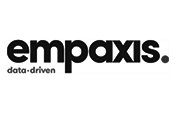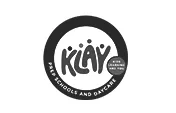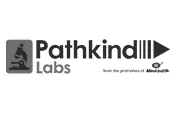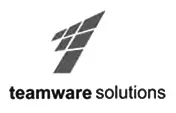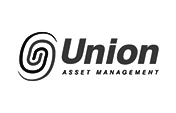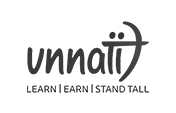eLearning Platform : An Introduction
The popularity of eLearning is on the rise, and it's no wonder why. In recent years, intelligent
learning tools have made remarkable progress in delivering comprehensive, engaging, and dynamic
educational experiences.
Those who have experienced eLearning can attest to its effectiveness and convenience. In today's
"always-on" era, learners and organisations benefit greatly from eLearning. But what exactly is
eLearning? Regardless of whether you're a novice or an expert, the demand for eLearning has
undoubtedly multiplied.
eLearning offers organizations a cost-effective and time-efficient alternative to traditional
training methods. It provides employees easy access to training that enhances their skills and
knowledge. Furthermore, organisations utilise eLearning to train their partners and customers,
driving adoption, retention, and revenue growth.
The market for eLearning solutions shows no signs of slowing down. Let's delve into what
eLearning truly entails, explore the different types and technologies available, and discover
the benefits it can bring to your organisation.
What Is an eLearning Platform?
An eLearning platform is a web-based collection of digital services that offers instructors,
learners, and participants access to knowledge, resources, and materials. Its purpose is to
facilitate and enhance the distributing and managing learning process. One common type of
eLearning platform is a learning management system (LMS).
Finally, when choosing a learning platform, it's crucial to select one that presents your
program to learners in an appealing manner. To help you differentiate between various LMS
solutions, we have compiled a checklist of critical elements to consider while selecting the
right platform.
What Are the Types of eLearning?
The Two Types of eLearning - Synchronous vs. Asynchronous
Self-paced e-learning, known as asynchronous e-learning, allows learners to complete courses
conveniently, usually using a laptop computer. These programs may include interactive
elements
such as quizzes, exercises, and activities, as well as pre-recorded lecture content
comprising
videos, images, and text.
On the other hand, synchronous e-learning, also referred to as regular training, web-based
learning, or electronic training, involves delivering training in real time to a group of
geographically separated learners. This type of training often occurs through
web-conferencing
or online learning platforms , enabling features
like
screen sharing, chat, polling, and screen
annotation to enhance learner engagement.
Understanding the Evolution of eLearning
To truly grasp how eLearning serves organisations today, it's valuable to look back at its
history. In 1999, Elliott Maisie coined the term "eLearning," marking its professional
introduction. Since then, eLearning has gained significant recognition. So, what factors
have
contributed to its prominence as the most popular training delivery method? Here are some
key
elements:
Before the widespread growth of the internet, learning and training predominantly relied on
printed manuals, CD-ROMs, and other limited methods. The advent of the internet allowed
businesses to move away from one-dimensional approaches and embrace the versatility of
eLearning.
As eLearning advanced, incorporating multimedia elements such as photos, videos, music, and
visuals proved more effective in maintaining learners' engagement than traditional
instructional
methods.
The decreasing cost of electronic technologies played a significant role in eLearning's
popularity. Considering that the first IBM PC cost around $5000 in today's currency, it's
evident how affordability fueled the expansion of eLearning. Mobile learning has further
contributed to its growth.
Learning management systems (LMSs) have transformed from manually hosted systems to
cloud-based
platforms. Organisations increasingly rely on LMSs to deliver diverse training programs.
When choosing an LMS, there are multiple factors to consider. At the very least, ensure that
the
platform provides the necessary functionality and support to achieve your goals and meet the
needs of your learners.
What Are the Advantages of eLearning?
E-learning has a global impact by increasing access to education, benefiting learners
worldwide.
It particularly empowers disadvantaged groups while facilitating the training and
integration of
an increasingly diverse international workforce. The availability of online content allows
learners to access their materials anytime, anywhere, and through any device.
A reliable learning management system (LMS) enables users to take e-learning courses
seamlessly
on their desktop computers, smartphones, or tablets. This flexibility allows individuals to
learn at their preferred times, surpassing the limitations of traditional classroom
settings.
Moreover, learners can start a course on one device and continue it on another, making it
convenient to fit learning into their busy schedules.
Streamlined Course Creation
An effective LMS provides user-friendly course authoring tools that enable instructors to produce and update course content efficiently. This consolidation ensures that learners can access all course materials in one convenient location. Additionally, the ability to track and demonstrate learners' progress is a crucial feature, especially for courses that require proof of mandated training.
Simplified Management for Course Administrators
E-learning offers managers and administrators a cost-effective and efficient approach to organizational development and educational sessions. Using online platforms, e-learning saves time, costs, supplies, and resources. As it is accessible online, a larger number of learners and employees can engage in training simultaneously. The reach of learning, training, and professional growth expands significantly with the continuous advancement of e-learning technology.
Personalised Learning Experience
Some learners may feel uncomfortable in larger classes, especially when facing difficulties that others do not. E-learning allows individuals to learn independently while incorporating interactive exercises tailored to their needs.
Enhanced Efficiency for Trainers
Trainers often need help with overwhelming workloads, having to train large groups instead of providing focused support to a few new employees. Consequently, many resorts to delivering generic presentations that only cover the basics without addressing the intricacies of specific topics. With e-learning, trainers gain more time and can provide comprehensive and targeted training to individuals, ensuring a deeper understanding of complex subjects.
Seamless Sharing of Learning Data
Every LMS ensures secure and reliable storage, sharing, and exchange of educational materials such as courses, exams, papers, tutorials, and instructions that support an organization's learning program. These centralised data sources serve as a repository from which learners can access knowledge as needed or as performance-support aids during face- to-face teaching sessions.
Diverse Learning Modes and Media Formats
Traditional training methods often rely solely on verbal or written instructions from trainers, limiting the learning experience. However, a sophisticated learning management system allows learners to access various learning elements in multiple media formats, such as HTML, video, voice, and text. This creates a knowledge repository that offers extensive and engaging learning opportunities.
Enhanced Return on Investment and Compliance
eLearning provides a win-win situation for companies and employees by offering more training at a reduced cost and increased ROI . It also ensures greater compliance within a shorter timeframe. New employees can quickly familiarise themselves with the organisation while existing employees stay updated with compliance changes. The data provided by your LMS offer independent evidence of completed training, going beyond mere opinions.
Cost-Effectiveness
One of the most significant advantages of eLearning is its cost-effectiveness , which is widely appreciated. Traditional face-to-face classroom training can be expensive and time-consuming to maintain. With eLearning, there is no need for costly printed tutorials or on-site trainers. Modifying content modules is effortlessly done through your LMS without printing and distributing new training materials.
Time Savings
Time is precious, especially in the workplace. eLearning simplifies the process of
communicating
necessary changes. Whether it's updating training content or corporate policies,
eLearning
makes
implementing these changes within your LMS easy. This saves valuable time that would
otherwise
be spent on reprinting and disseminating materials.
Learners also save time by accessing information promptly instead of waiting for
scheduled
training sessions. Additionally, your LMS can streamline manual operations, further
saving
time
in training management.
Increased Productivity
eLearning enables learners to complete their training more efficiently, improving productivity. Learners appreciate the flexibility of engaging in education at their own pace and convenience. This autonomy fosters motivation and drives learners to pursue their career goals. By allowing learners to learn at their speed and location, eLearning empowers them to excel.
Reduced Carbon Footprint
Many companies are actively striving to reduce their carbon footprint as part of their corporate social responsibility initiatives. eLearning offers an environmentally friendly alternative to paper- based education, promoting a sustainable and eco-conscious workplace.
Enhanced Training Efficiency Overall
Engaging and motivational eLearning experiences available "any time, any place" inspire
employees to complete more training. As they acquire more knowledge, they make progress
towards
overall training objectives.
With eLearning, you have the flexibility to create training materials that are
contemporary,
relevant, and adaptable. Rapid authoring tools enable quick changes, often within
minutes,
ensuring that your training content aligns with your organisation's needs.
What Are the Challenges in Corporate L&D?
Despite its advantages, web-based training also has its limitations .
One of
the most significant
drawbacks is the distance factor. While the learning content is readily available to
learners at
their fingertips, there can be a sense of detachment between the instructor and the trainee.
This detachment can harm specific individuals ' learning processes, even on live chat
platforms
like Google Meet, Teams, or Zoom.
The quality of the learning material is another crucial factor to consider. If not correctly
designed, internet-based learning can become monotonous, with repetitive tasks that fail to
captivate learners. To address this, it is vital to choose a development platform that
offers a
variety of quick authoring tools. This encourages course creators to utilise these tools and
enhance the overall quality of the learning material.
How to Select an eLearning Platform?
An effective eLearning platform should aim to create a robust experiential learning
framework
that closely resembles a traditional classroom experience. It should include essential
features
such as communication between trainers and learners, Q&A sessions, conversations, games,
group
projects, practice tests, and more.
However, these features are delivered through online platforms or devices like laptops,
desktops, tablets, or mobile devices. The
tools and features provided by the learning platform
play a vital role in fostering learner participation and engagement.
When choosing an online platform, it is crucial to ensure that it supports multiple material
formats to cater to different learning styles. Various content formats can be utilised in
eLearning, including essays, discussions, seminars, infographics, PowerPoint slides,
simulations, and videos. The learning platform should include content sections, learning
modules, assessment functionalities , and communication
segments to provide a comprehensive
learning experience.
By incorporating these modules, your training program can employ a diverse range of
instructional techniques tailored to each learner's needs. This enables learners to improve
their efficiency and long-term retention of knowledge.
Here's How You Need to Go About Picking the Right eLearning Platform
Understand the Needs of Your Learners
Your learners are the central focus of your training program, and it is essential to
determine
what they aim to achieve through the course. Do they want to acquire a new skill, such
as
programming, or are they seeking training in a specific workflow?
Depending on your industry and business goals , you need an LMS
with
features aligned with your
learners' requirements. This understanding will shape how you organise and deliver the
course
material. Consider the impact of instructional content and design on learning outcomes
during
the e-learning development process.
For example, if your company implements a sales training program , look for an LMS with
features
like chronological course navigation, assessment quizzes, and course progress reporting.
This
type of corporate training may not require one-on-one communication.
On the other hand, if your organisation offers specialised training programs involving
learner-
teacher interaction, such as second language instruction or coding courses, an LMS that
facilitates personalised course creation , task management,
and
communication features will
better meet your learners' needs.
Identify Essential Features
Using an LMS with excessive features that do not align with your training program's requirements can be wasteful. Moreover, an overly complex LMS can hinder the user's learning experience, leading to dissatisfaction and confusion. PlayAblo's eLearning platform is highly recommended for its user-friendly interface, simplicity, engaging learning experience, gamification elements, and straightforward administration.
Consider Mobile Optimisation
With the prevalence of smartphones, learners increasingly seek on-the-go access to training materials across industries, empowering them to take control of their self-learning journey. Research the proportion of trainees in your sector who prefer accessing training on smartphones rather than laptops or tablets. If this figure exceeds 25%, ensure the selected LMS is mobile-friendly to cater to their needs.
Explore Integration Features of the eLearning Platform
To streamline the user's learning experience within a unified portal, verifying whether
your
eLearning platform allows for easy integration of applications or functionalities
is crucial.
This ensures employees do not need to repeat processes or switch between systems.
Single sign-on (SSO) is a valuable component of an LMS that enhances the user
experience. It
enables users to log in to multiple applications using the same credentials, eliminating
the
need to log in separately for each program within the LMS.
Assess Security Functionalities
When selecting an LMS, managing confidential data is of utmost importance. A security
breach
can
severely affect your company's image and reputation. It is essential to ensure that your
chosen
LMS has robust security protocols to protect your content and users' personal
information.
By addressing these considerations, you can confidently choose the right LMS for your
training
program, whether you are an SMB, startup, large-scale corporation, enterprise, or
aspiring
to
establish your own training business.
Evaluate Compatibility with Your Existing Content Framework
When comparing different learning platforms, it is crucial to consider whether the
eLearning
platform supports your current content framework. An LMS serves as a repository for
modules
and
course content, and it is crucial to assess compatibility with various content formats.
While audio and video are essential elements, other formats, such as PDFs, Google Docs,
MP3s,
SCORM, and Tin Can (xAPI), are also utilised in eLearning. Create a list of all the
content
formats you will use in your courses and ensure that your desired LMS effectively
supports
them.
What Are the Features of a Good eLearning Management System?
Micro-Learning
Micro-learning refers to the approach of delivering content in easily digestible portions that are memorable. Research has shown that learners struggle to absorb a large amount of material in a single course or session, but breaking it down into manageable parts significantly improves absorption. This makes microlearning a highly effective method compared to traditional training. It should be an essential component of any e-learning system utilised for workplace training, e- commerce training, or general learning.
Mobile Learning (mLearning)
In today's world, smartphones are ubiquitous, especially in professional environments. Enabling learners to access courses and training materials on their mobile devices via mobile learning empowers them to learn whenever and wherever they prefer.
Varied Templates
While considering the advantages of eLearning, it's essential to avoid getting stuck in a rut of multiple-choice or true-or-false questions. A robust electronic learning platform should offer a range of templates, allowing learners to respond to inquiries differently. Match-to-right-answers questions, dictionary lookups, tap and touch lessons, and other interactive techniques can be incorporated. By including these elements in micro-lessons, learners stay engaged and actively participate.
Cloud-Based Learning
In many parts of the world, broadband infrastructure only supports distributing large courseware files to numerous individuals efficiently. This makes managing information updates and version control a daunting task. However, with a cloud-based electronic learning platform, you can effortlessly update programs or modules as needed, ensuring that all learners have instant access to the latest content.
Gamification Elements
Even the most motivated learners can become bored and disengaged when it comes to completing training. Why not introduce rewards and a competitive element? An excellent eLearning platform allows you to assign points for correct answers and track response times. This enables you to recognise and reward top performers. Introducing a competitive element makes learning more engaging and enjoyable, transforming it from a chore to an immersive experience.
What’s eLearning Development: Understanding the Basics
Creating appealing learning resources and selecting the right learning management system
(LMS)
is essential for ensuring learner engagement and retention. It is crucial to master
designing
E-Learning materials that cater to your target audience.
E-Learning development involves exploring learning principles, learning styles, and
practical
instructional fundamentals to deliver technology-based education. Initially,
computer-assisted
learning systems were referred to as computer-based training, but now E-Learning encompasses
a
wide range of technologies for education and training.
Today, E-Learning developers leverage various tools such as simulations, games, smartphones,
GPS
technology, and multimedia to create immersive learning experiences. The evolution of
E-Learning
has transformed the online learning landscape, encompassing any form of education delivered
through technology, including live streaming of instructor-led classes using standard tools.
Creating E-Learning requires diverse skills, including project management, visual graphics,
instructional design, computing, multimedia, creative writing, and language translations.
While
many E-Learning developers come from a technological background, some innovative individuals
with teaching experience apply their expertise to this emerging field.
To be successful in E-Learning development, it is essential to have
a
comprehensive
understanding of all the necessary design capabilities. Specialising in only one aspect can
limit opportunities, so acquiring a solid proficiency in E-Learning design skills is
recommended
to create impactful curriculum materials.
What Are the Different eLearning Deployment Methods?
Learning Management System (LMS)
A unique learning management system (LMS) is a software solution that empowers you to
implement
your eLearning strategy seamlessly. It goes beyond expectations by providing the
necessary
tools
and support for delivering online training effectively.
An LMS is a cloud-based program that enables organisations to deliver training materials
and
resources to their employees. Typically web-based, the LMS offers unlimited access to e-
learning programs and relevant instructional content. It may also be called a Course
Management
System, Pedagogical Platform, or E-Learning Platform.
Acting as a bridge between educational advancements and practical technological
applications, an
LMS helps instructors facilitate and enhance employee learning experiences by
contextualising
them consistently and creatively. Learning organisations emphasise that technology alone
is
not
enough to drive significant improvements in learning; it must be fully and consistently
integrated to enhance how employees acquire knowledge.
Through an LMS, employees can enrol in and track their progress in e-learning courses,
gaining a
clear understanding of their achievements. As a result of this focus on e-learning,
Learning
Management Systems are increasingly used as a combination of Learning and Performance Management Systems.
Choosing an LMS may initially appear daunting, but you can significantly narrow down
your
options by assessing your training requirements and defining your goals. There are
various
types
of LMSs, including cloud-based, open-source, commercial, and installation-based.
Cloud-based LMSs have become the standard for online learning because they can rapidly
create
courses, enrol users quickly, and provide reliable reporting on learner progress. Opting
for
a
cloud-based LMS supported by a dedicated customer success team enables seamless
scalability
of
your training initiatives.
Sharable Content Object Reference Model (SCORM)
SCORM offers learners a more interactive and engaging experience while giving them
greater
control over their course engagement.
SCORM, an acronym for
Shareable Content Object Reference Model,
encompasses a set of technical
specifications that ensure consistent development and utilisation of eLearning content.
It
standardises the creation and distribution of eLearning courses.
Most SCORM courses follow a similar structure as they are developed using standard
authoring
tools. To leverage SCORM in your eLearning, you need a SCORM-compliant LMS. However,
employing
SCORM for eLearning distribution may incur additional costs associated with authoring
tools.
Nevertheless, the benefits outweigh the drawbacks, making it a worthwhile investment.
Experience API (xAPI)
xAPI, the next generation of SCORM, has rapidly emerged as the industry standard for
delivering
online training. It revolutionises learning event-tracking methods and offers a level of
flexibility suited for today's fast-paced world.
Modern learners seek to learn on the go, whether during their commute or while grabbing
coffee.
xAPI enables tracking all these learning experiences in a single, user-friendly format.
xAPI provides a comprehensive view of learners' experiences. However, it also has
limitations.
Some organisations mistakenly believe that employing xAPI or Tin Can automatically
enhances
their courses' user experience (UX) or user interface (UI). In reality, xAPI solely
governs
how
data is handled and does not impact the course design or improve UX/UI.
What Training Types Can be Delivered Via eLearning?
Staff Development
The most prevalent form of eLearning facilitated by an LMS is staff training. Businesses
utilise
employee
training for various purposes, such as onboarding new hires and enhancing employee
performance.
Utilising an LMS
for staff training streamlines and formalises the entire training process.
Compared to traditional training methods, eLearning fosters professional growth by
cultivating
knowledge and
learning culture. Additionally, your LMS should empower you to create assessments,
generate
reports, and gather
feedback to monitor and evaluate training effectiveness.
Regulatory Compliance Training
Compliance training is a crucial requirement
for
most
businesses. It teaches employees about the laws and regulations relevant to their roles
and
industries.
Compliance training encompasses topics like workplace health, safety, and ethics.
Examples of compliance training include:
● HR Law
● Diversity Training
● Anti-Harassment Education
A well-executed compliance training program minimises non-compliance risk and safeguards your reputation. It also fosters a healthier and more productive work environment for your employees. Moreover, eLearning through a reliable LMS simplifies staying up-to-date with new legislation and adapting your training content accordingly.
Partner Enablement
Partner training, also known as reseller training, equips your partners with the necessary skills to contribute effectively to your organisation. It encompasses product knowledge training, sales techniques, support training, marketing strategies, and more. Certification training is often a prerequisite for becoming a partner. Partner training offers numerous benefits, including partner engagement, cost savings, scalability, and brand protection.
Customer Education
While training your customers may seem unconventional, it holds significant value. Customers benefit from training programs as they learn to use and understand your product or service effectively. This is particularly common in software companies. Customer training yields advantages for both the providing company and the customers themselves. It enhances customer onboarding, increases engagement with your offerings, and improves customer retention.
How to Implement an eLearning LMS?
Establish Your Learning Portal
Your electronic learning platform's portal serves as your dedicated learning hub, providing access to all the resources you have made available online. Follow these essential steps to get started:
Secure a Domain
Choose a unique domain name (URL) for your learning portal that is memorable and easy for users to access. Check its availability using a domain checker tool. If you are developing this portal for internal use within your organisation, prioritise simplicity over sales-oriented features.
Determine Hosting Options
Decide how you will host your learning portal. Will it reside on your servers, a national network, or in the cloud? Make a choice and lay the groundwork accordingly.
Design the Portal's Main Page
Utilise templates provided by your e-learning platform to create the main page of your portal. These templates are user-friendly and customisable, allowing you to control the fonts, colours, and backgrounds and even upload images to enhance the visual appeal of your website.
Connect to Learning Materials
Ensure your trainees can easily access the valuable content you have created through your portal. Depending on your learning management system (LMS), linking additional web pages and resources may involve connecting. Templates provided by the platform should simplify this process.
Implementing eLearning LMS with PlayAblo
Using a Software-as-a-Service (SaaS) based LMS
like PlayAblo simplifies hosting, tracking, measuring, and
reporting on online courses. PlayAblo's LMS includes built-in analytics tools, enabling
employees to review
performance data and evaluate learner progress quickly. This data-driven approach allows for
targeted strategies
to re-engage specific learners.
Additionally, PlayAblo offers a range of features such as assignments, e-Certifications,
Learning Paths, and
Supervisor Feedback, enabling effective management and guidance of learners. PlayAblo's LMS
ensures that
learners not only complete the courses but also effectively apply their newly acquired
skills in
their
day-to-day roles, preparing them for increased responsibilities.
PlayAblo's eLearning course development software is highly customisable and adaptable to any
learning objective,
providing industry-agnostic learning modules. The comprehensive administrator tool
facilitates
user management
and content distribution. Personalised branding options are available to align with your
company's
specifications. Our content delivery follows a subscription model.
Our team of experienced developers and testers is ready to assist you in creating customised
e-
learning
courses. Contact us for more information. We are eager to discuss your requirements and
provide
our assistance!
PlayAblo
PlayAblo’s eLearning course development software is customizable for any learning objective that
delivers industry-agnostic learning modules. A comprehensive administrator tool manages user details and
content dissemination. You can also use our software to develop personalized branding as per your
company specifications. Finally, we follow a subscription model for our content delivery.
Our team of expert developers and testers can help you in creating the perfect, custom e-learning
course. For more information, please reach out to us. We’d love to discuss your needs and how we can
help!
Our Clients





